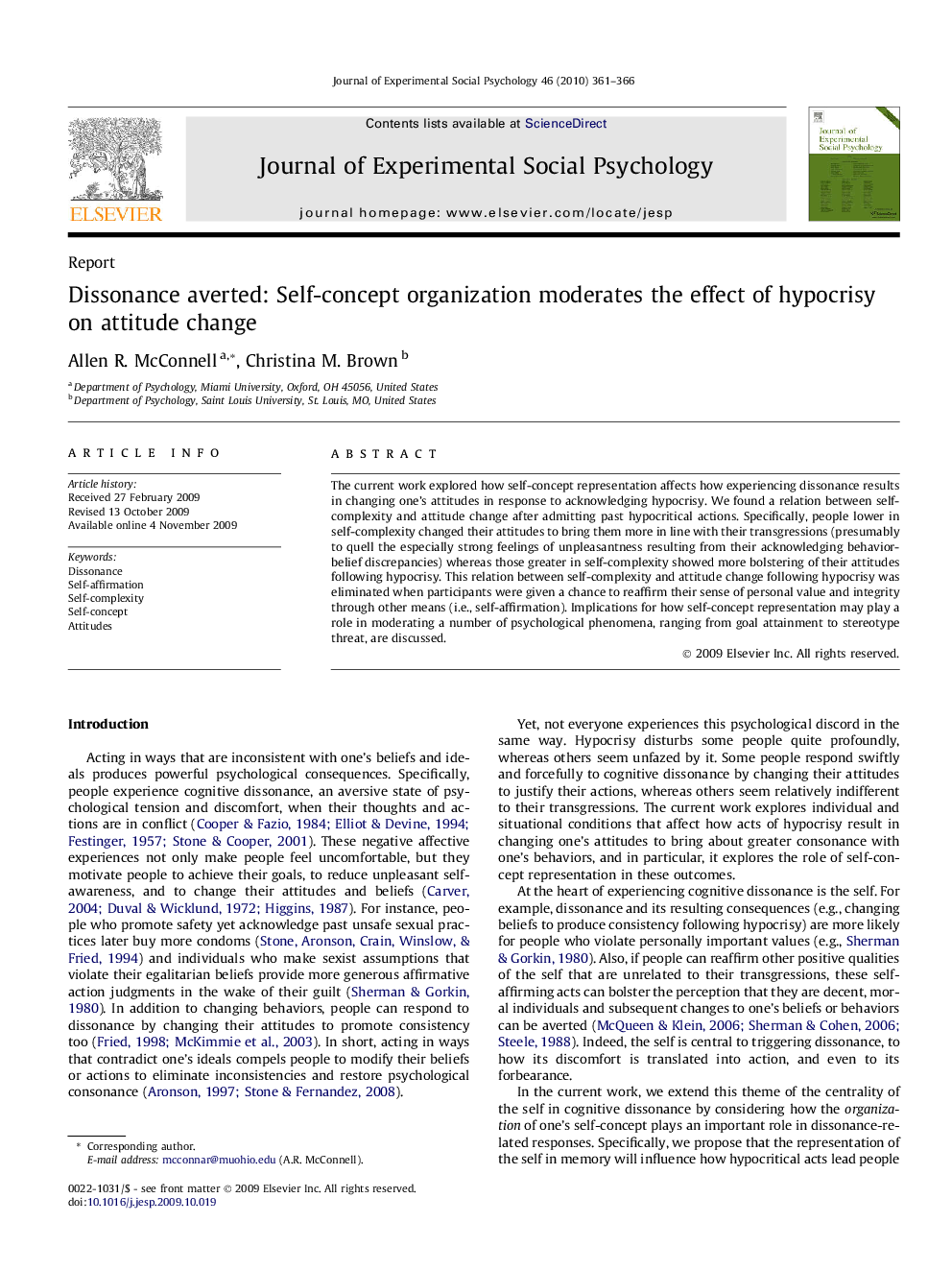| Article ID | Journal | Published Year | Pages | File Type |
|---|---|---|---|---|
| 948460 | Journal of Experimental Social Psychology | 2010 | 6 Pages |
The current work explored how self-concept representation affects how experiencing dissonance results in changing one’s attitudes in response to acknowledging hypocrisy. We found a relation between self-complexity and attitude change after admitting past hypocritical actions. Specifically, people lower in self-complexity changed their attitudes to bring them more in line with their transgressions (presumably to quell the especially strong feelings of unpleasantness resulting from their acknowledging behavior-belief discrepancies) whereas those greater in self-complexity showed more bolstering of their attitudes following hypocrisy. This relation between self-complexity and attitude change following hypocrisy was eliminated when participants were given a chance to reaffirm their sense of personal value and integrity through other means (i.e., self-affirmation). Implications for how self-concept representation may play a role in moderating a number of psychological phenomena, ranging from goal attainment to stereotype threat, are discussed.
